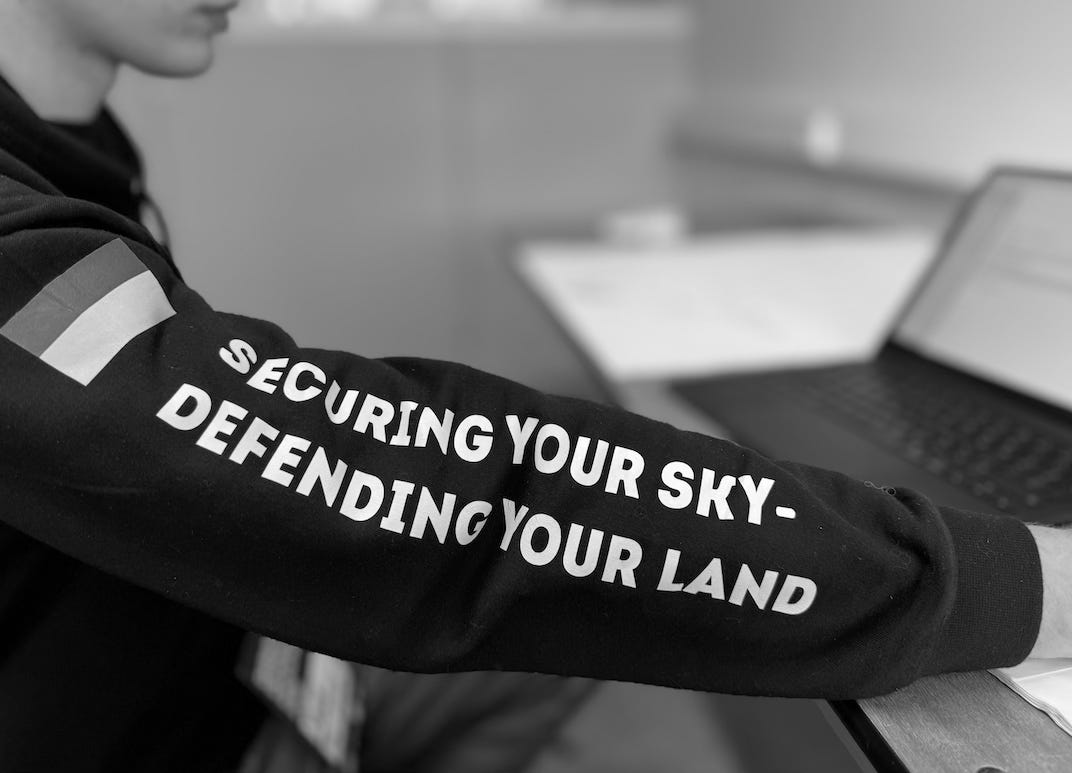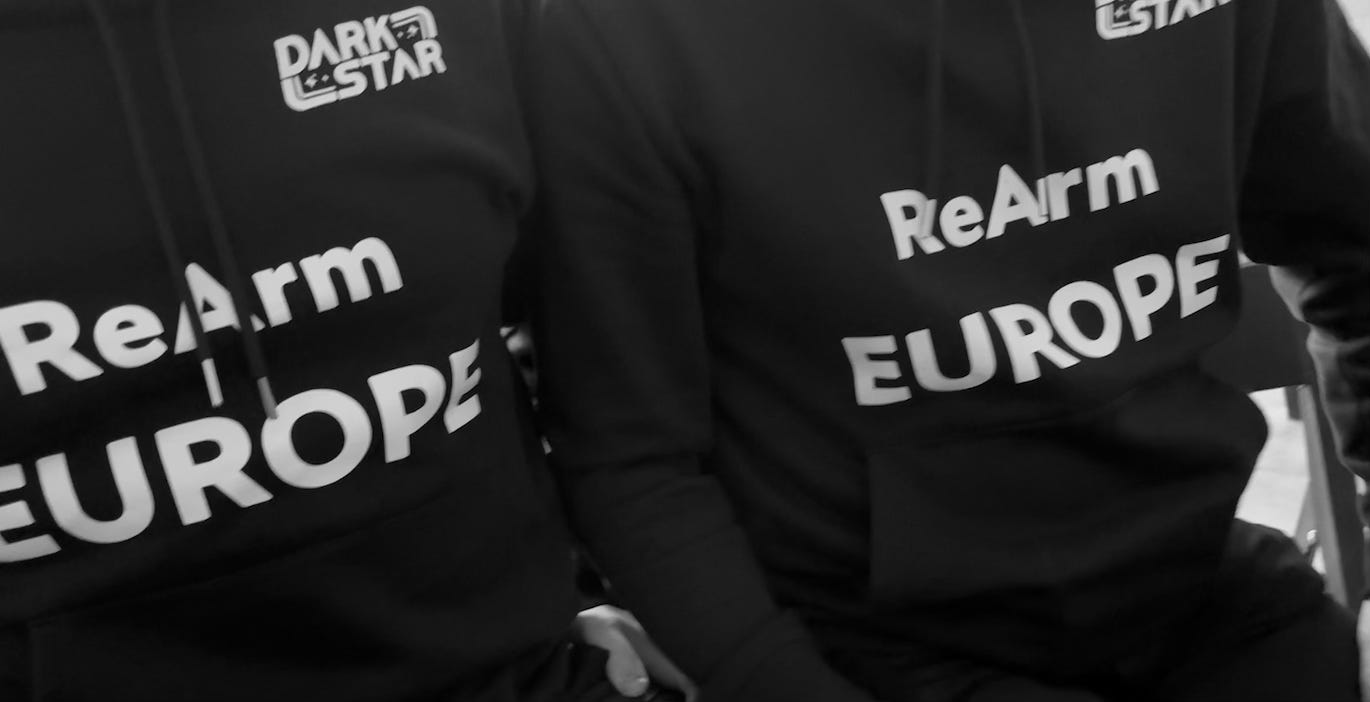Dispatches from DarkStar Hackathon Finland
DarkStar ran a hackathon in Finland - tagline, ReArm Europe - that brought together hack teams and well established Finnish companies with Ukrainian, Finnish, and Estonian soldiers.
Over a weekend in Finland, DarkStar ran their second hackathon. This is part of a wider defence tech ecosystem they have built that includes meetups, bootcamps in Ukraine, angel investing, and a fund. Built by the European tech ecosystem, DarkStar works closely with the Ukrainian military, and with the militaries in their region. Their aim is to get technology to Ukraine as fast as possible and to defend their own countries.
DarkStar co-founder, the Estonian tech entrepreneur and investor Ragnar Sass, opened the event by explaining, “we are running this event because there is a war in Ukraine, and it is imposing an unimaginable price on Ukrainians. We have one goal, to help the heroes on the front line. But for many of them it is too late.” He then invited the room to stand in silence in their memory.
DarkStar events are held 1-2 hours from the Russian border. They also feel very close to the Ukrainian front lines because of the close ties between the Estonian and Ukrainian defence tech ecosystems. This adds a sense of urgency to events that feel very real and visceral - they do not shy away from pure defence tech, as you will see from the pitches below. They are about war as much as they are about business.
The event brought together 21 nationalities, 200+ people, including Ukrainian soldiers from the Khartiia Brigade, and saw teams develop 34 ideas over the weekend. Sass reminded the audience that by Tuesday the Ukrainian soldiers we had just applauded would be back on the frontline in Ukraine.
Something that came up repeatedly, and with urgency, is that Europe is unprepared. If there is a ceasefire in Ukraine, Russian defence factories will not stop production. Sass pointed out that Russia is building thousands of autonomous drones and its factories work 24/7; Europe produces 580,000 shells per year, Russia produces 3m; Russia has wartime rules, Europe has peacetime rules. Russia is not weak, they kill ‘unbelievable numbers of people.’
“We avoid this by being strong. We need to learn from Ukraine, then rearm Europe. We need to help our governments and militaries; we’ve reached a point where military strategy and playbooks can change every 4 months. So, we need to help the military. In Estonia we know we have a few years to prepare for a war,” Sass told the audience.
It is interesting to see how these hackathons are developing. Whilst this one had some newly formed teams, there were also teams developing work they had started at the previous hackathon. What was strikingly different were the Finnish companies who were attending. Many were well established businesses that wanted to see how they could adapt commercial technologies for defence, or which came with products in order to get feedback from the soldiers of the Ukrainian, Estonian, and Finnish Armies.
But these events are also about more than technology. The networking goes deep, with people spending 3 days together, sharing meals and accomodation. This is also about getting people to think about problem statements, experiment, and getting more people engaged. Whether or not the technologies developed make it to market, or to the front line, it is also important to get people from the wider tech sector to engage with defence and security. The event had an amazing lack of egos and a very collaborative spirit, with some of Europe’s most successful tech entrepreneurs, leading professors, and mentors mixing with teenage hackers, engineers, and soldiers on very much equal terms.
One team caught everyone’s attention because their representative was a 17 year old Ukrainian. The team is made up of three Ukrainians who have been working on this since they were 16. The 17 year old was there alone because his two friends recently turned 18 and are no longer able to leave Ukraine. 18 months ago, they entered a Kyiv Political Institute competition which got them thinking about how to disable drones, and then they developed their team out of a Kyiv School of Economics incubator.
With the tag line ‘securing your sky, defending your land,’ their solution has been tested in the battlefield, where a regiment in the Kursk region took down three drones at 40 meters and a Mavic bomber at 50 meters.
They are looking for 60,000 Euros to scale production, but ideally 200,000 Euros to establish a company in Estonia, develop the product, and launch anti-drone training courses and an R&D lab. Anyone who wants to support them with some funding can contact them through Resilience Media with subject line ‘Team XN.’
We were also pleased to give tickets for Resilience Conference as a prize at the hackathon to a team working on undersea security, as we feel this needs urgent attention and we loved their solution that combines AI-powered 3D processing with live sensor feeds.
Two British attendees with military backgrounds were very impressed. They saw several technologies that would address use cases in the UK military now and will be following up with the teams. A VinDo Technology representative said:
“The value here is unmistakable — this event is miles apart from the typical conferences we’ve attended. Real companies and real people are solving real-world challenges that could impact operations tomorrow. There was no elitism, no one selling anything — just teams bringing technology together to help where it matters most.”
The teams looked at solutions ranging from battlefield communications and drone mounted weaponry through to 3D mapping both from the air and underwater. There were very niche solutions, like how UGVs can manage payloads autonomously, and tools to make close combat operations safer for soldiers. Sensing, detection, autonomy, and drone control solutions were developed with use of AI, and there were plenty of examples of existing civilian solutions being adapted for the battlefield. These solutions were not weekend hacks. Many of the teams are working towards their products being deployed in Ukraine, and are raising investment to develop them.
We are inviting DarkStar to Resilience Conference to showcase in more detail the products they have developed through hackathons, bootcamps, and their investment activity. Meanwhile, keep an eye out for their next event.




